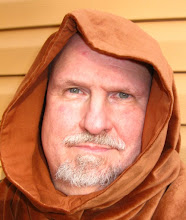Ever heard of Édouard-Léon Scott de Martinville? No? That's ok, because until just now, I hadn't heard of him either. Yet he is important in the history of invention and sound recording, because he did it first:
For more than a century, since he captured the spoken words “Mary had a little lamb” on a sheet of tinfoil, Thomas Edison has been considered the father of recorded sound. But researchers say they have unearthed a recording of the human voice, made by a little-known Frenchman, that predates Edison’s invention of the phonograph by nearly two decades.
The 10-second recording of a singer crooning the folk song “Au Clair de la Lune” was discovered earlier this month in an archive in Paris by a group of American audio historians. It was made, the researchers say, on April 9, 1860, on a phonautograph, a machine designed to record sounds visually, not to play them back. But the phonautograph recording, or phonautogram, was made playable — converted from squiggles on paper to sound — by scientists at the Lawrence Berkeley National Laboratory in Berkeley, Calif.
This does not mean that Scott's phonautograms get the credit for first artificial sound heard - - that belongs to Edison alone - - but Scott's invention is the first instance of sound being recorded, an important distinction. Think of it this way: The USSR was the first country to actually touch the moon with an earth-made object, a satellite that crash-landed there back in the 60's. But it was the USA that first landed a man on the moon. Big difference.
Update: Welcome, Instapundit readers!
Thursday, March 27, 2008
Subscribe to:
Post Comments (Atom)








No comments:
Post a Comment